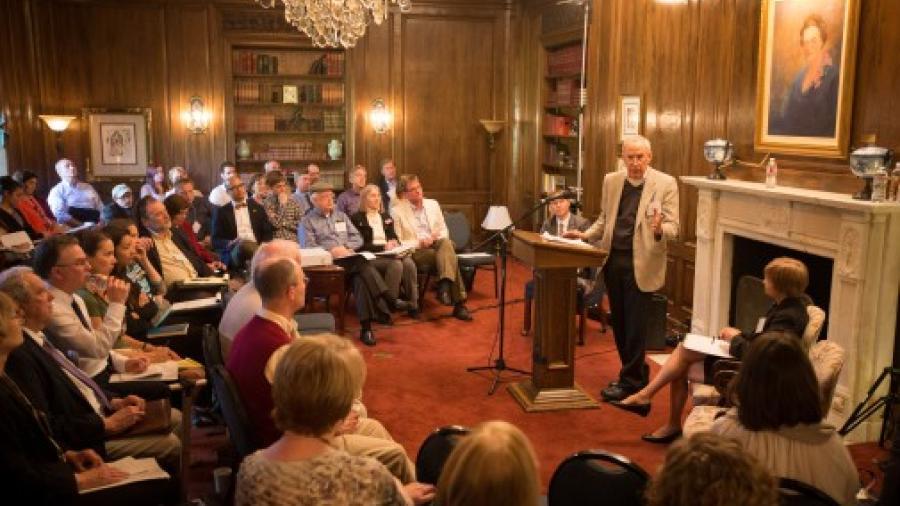Westmont Magazine What’s Good About the Liberal Arts?

Annual Gaede Institute Conversation Examined Ways the Liberal Arts Contribute to the Social Good
The Gaede Institute for the Liberal Arts focused its 14th annual conference, The Liberal Arts and the Social Good, on the contributions of liberal arts education to contemporary society.
Speakers included: Georgia Nugent, former president of Kenyon College who led the Council of Independent Colleges’ Campaign for the Liberal Arts; Anne Colby and Tom Ehrlich, Stanford professors and co-authors of several books on liberal education; Larry Bucciarelli, emeritus professor of engineering at MIT; and Marilyn McEntyre, a Gaede Institute fellow who teaches medical humanities at the UC Berkeley-UC San Francisco Joint Medical Program.
“Liberal arts education receives a lot of criticism these days,” says Christian Hoeckley, director of the Gaede Institute. “But we consider it irreplaceably valuable to American society. A strong economy, essential as it is, is not the only good thing in a society. Important aspects of our civic life are a real mess, and no other model of higher education explicitly seeks to promote engaged, well- informed, and critical political participation. A liberal arts education plays a huge role in economic strength and the job market as it develops skills that business leaders consistently rank as most important.”
In her opening talk, “The Wisdom of Socratic Ignorance,” Nugent said our greatest wisdom resides in knowing what we don’t know and in paying attention to virtues and the soul as well as to money and fame.
Bucciarelli discussed “Liberal Studies in Engineering” and said students can receive both substantive content in engineering and a liberal education. This combination offers better career preparation by including issues such as ethics and promoting life-long learning.
Colby’s and Ehrlich’s paper, “The False Dichotomy Between Liberal and Professional Education,” identified strengths of liberal education, such as analytical thinking, reflective exploration of meaning and practical reasoning, that professional education lacks. “Equipment for Living,” McEntyre’s presentation, invited reflection on the qualities and capabilities colleges hope to foster through the liberal arts.